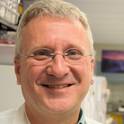
Introduction: Obesity is one of the largest modifiable risk factors for the development of musculoskeletal diseases, including intervertebral disc (IVD) degeneration and back pain. Despite the clinical association, no studies have directly assessed whether diet-induced obesity accelerates IVD degeneration, back pain, or investigated the biological mediators underlying this association. In this study, we examine the effects of chronic consumption of a high-fat or high-fat/high-sugar (western) diet on the IVD, knee joint, and pain-associated outcomes. Methods: Male C57BL/6N mice were randomized into one of three diet groups (chow control; high-fat; high-fat, high-sugar western diet) at 10 weeks of age and remained on the diet for 12, 24, or 40 weeks. At endpoint, animals were assessed for behavioral indicators of pain, joint tissues were collected for histological and molecular analysis, serum was collected to assess for markers of systemic inflammation, and IBA-1, GFAP, and CGRP were measured in spinal cords by immunohistochemistry. Results: Animals fed obesogenic (high-fat or western) diets showed behavioral indicators of pain beginning at 12 weeks and persisting up to 40 weeks of diet consumption. Histological indicators of moderate joint degeneration were detected in the IVD and knee following 40 weeks on the experimental diets. Mice fed the obesogenic diets showed synovitis, increased intradiscal expression of inflammatory cytokines and circulating levels of MCP-1 compared to control. Linear regression modeling demonstrated that age and diet were both significant predictors of most pain-related behavioral outcomes, but not histopathological joint degeneration. Synovitis was associated with alterations in spontaneous activity. Conclusion: Diet-induced obesity accelerates IVD degeneration and knee OA in mice; however, pain-related behaviors precede and are independent of histopathological structural damage. These findings contribute to understanding the source of obesity-related back pain and the contribution of structural IVD degeneration.
Kerr, G.J., To, B., White, I. et al. Diet-induced obesity leads to behavioral indicators of pain preceding structural joint damage in wild-type mice. Arthritis Res Ther 23, 93 (2021). https://doi.org/10.1186/s13075-021-02463-5
